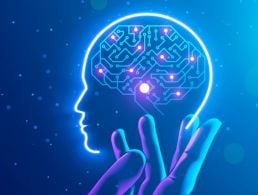Genuity Science’s Catie Pitts says she focuses on empathy, discretion, communication and more in her HR role.
It can be tough to find and retain the right talent in any industry, but biotech is particularly competitive, according to Genuity Science HR business partner Catie Pitts.
Still, she enjoys the different challenges she meets each day and the opportunities she gets to flex both hard and soft skills. Here, Pitts describes a typical day in her job and how she believes the role of HR has evolved in the organisation setting.
‘HR is no longer an administrative function that stays on the sidelines of an organisation’
– CATIE PITTS
If there is such a thing, can you describe a typical day in your role as HR business partner?
I’m not sure that there is such a thing in HR. It’s very much a support role to employees, so it’s hard to predict what I’ll be doing on any given day.
I partner with my client managers and teams on strategic planning and talent management, including recruitment and employee relations. I also manage our global employee stock ownership plan and administer employee-related services in the US, such as payroll and benefits.
What types of project do you work on?
I work on HR projects that support the long-term objectives of the organisation. These include building HR programmes such as performance management and compensation, strategic workforce planning and talent acquisition, evaluating and implementing systems, developing training programmes and designing company policies.
What skills do you use on a daily basis?
I use a good mix of hard and soft skills on a daily basis, including business acumen, problem solving, analytical skills, empathy, customer service, discretion, foresight, advising and coaching and leadership skills. The number one most important skill, however, is communication.
What is the hardest part of your working day?
My work does sometimes involve having difficult conversations with employees at all levels. Fortunately, this doesn’t happen very often.
Do you have any productivity tips that help you through the working day?
I keep a running to-do list and make it my goal each morning to complete certain tasks and deliverables on the list by the end of the day.
When you first started, what were you most surprised to learn was important in the role?
I was most surprised to learn that navigating HR issues is more of an art than a science. HR professionals often work in a grey area where policy is open to interpretation and human beings are involved, so we have to be able to weigh risks against benefits and consider many factors at once when solving problems.
How has this role changed as this sector has grown and evolved?
HR is no longer an administrative function that stays on the sidelines of an organisation. There has been a major shift toward strategic HR management in more recent years and HR is now playing a central role in the long-term success of the business.
This is particularly true in a competitive industry like biotech where it’s critical to recruit, develop and retain top talent.
What do you enjoy most about the job?
The aspect I enjoy most is partnering with management to shape a talented workforce. I find it very rewarding to hire people who bring success to the company.




